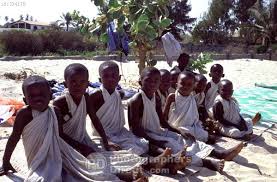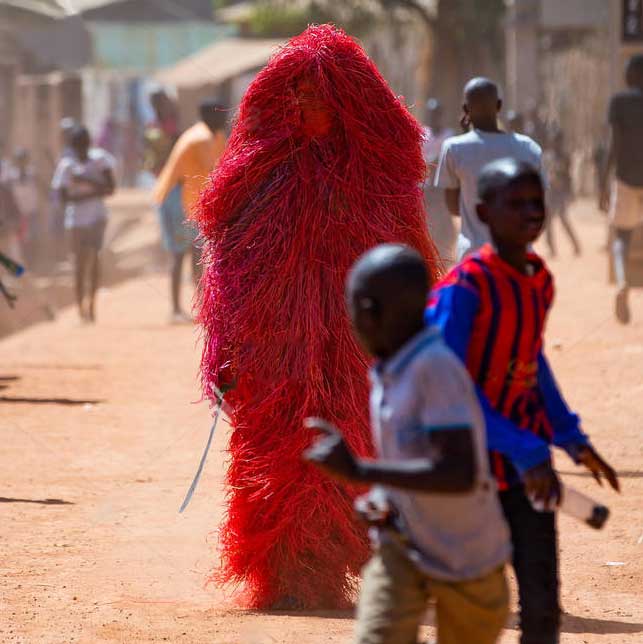
The circumcision camp “laii” was an institution of informal education where the initiates were taught courage, wisdom, “Jom” ak “gikoo “, the art of supporting each other and comradeship.
It was a centre were regardless of status/class initiates wore the same uniforms and they were taught the skills needed to live in a community and what was expected of them. The initiates had to learn the secret code of language including unspoken body language hence “passin”.
The camp was stratified in terms of leadership _ “botal mbarr”, ” ngaaman”, “bongh lekett”, “sabeh mbarr,” “magkgi mbarr”, “tohaal mbarr” and the list goes. Each one played a particular role in the camp from teaching the “njulis ” to fetching food from the community.
On the night of passing out or graduation, this was mark with a big celebration and the “njulis” were showered with grifts and “oyyeh mam”.
In many tribes in the Senegambia region, the operation was done in the bush by an elder who has lots of wisdom and may be a spiritual figure in the community. The initiates remained in the camp away from women until after their graduation. This was a school and still remains an educational establishment in some communities.

With colonialism and the introduction of foreign religions in our area and the coming of western formal education. We were told such cultural practices were not civilise; this important institution was replaced with formal education and young people taught that “learning is better than silver and gold”.
On some cultures like the Mandinkas, the kankurang and fangbodi are believed to drive away evil spirits and offer protection to the initiates. These masquerades are still present in must cultural celebrations.
“Juli Njie yoo Njie lii mbahii gorlaa, saa rakkaa dorr laa saa raki raki dorr laa, mann bougan naa laa dorr sama Yaram doww naa, yaiyeh alla mbarr bai alla Mbar, lii koox koo munch muu jaax munch yagou sii mbarr. ”
Such inspiring words instilled courage among initiates and the use of family names like njuli Njie and Sabeh Jobe promotes the cordial and jovial relationships between different clans to help eradicate any form of discrimination in communities.
Ones culture is the the very roots that support the life of a tree. Without the roots, there is no tree.
By Ebrima Jawo











Recent Comments